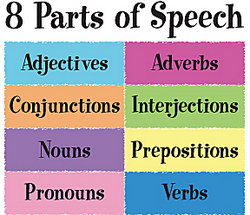Sentence Pattern
What is sentence pattern?
Systematic arrangement of words in a sentence meaningfully is sentence pattern.
There are five basic patterns. They are:
1. SV ( Subject + Verb )
2. SVO ( Subject + Verb + Object )
3. SVIODO ( Subject + Verb + Indirect Object + Direct Object )
4. SVC ( Subject + Verb + Complement )
5. SVOC ( Subject + Verb + Object + Complement )
SUBJECT: Subject is a word or group of words in a sentence about which something is
said.
VERB: Verb is a word or phrase expressing existence, action or occurrence.
COMPLEMENT: Complement is a word or phrase that usually come after a ‘be’ verb
such as am, is, are, was and were to make the sense complete.
Sometimes
COMPLEMENT comes after certain verbs such as become, turn, look, appear, feel, etc.
OBJECT: Object is a word or phrase in a sentence towards which the action of the
verbal element is directed.
If there are two objects in a sentence, the answer for the question
WHAT? is DIRECT OBJECT(DO) and
WHOM? is INDIRECT OBJECT (IDO).
I. SV ( Subject + Verb )
Subject Verb
The bird flies.
The cattle are grazing.
The boy ran.
The girl was dancing.
It will rain.
II. SVO ( Subject + Verb + Object )
Subject Verb Object
The man sold his house.
My father is buying a new car.
His uncle runs a business.
Rahul loves his mother.
Madan spent all his money.
III. SVIODO ( Subject + Verb + Indirect Object + Direct Object )
Subject Verb Indirect Object Direct Object
The teacher taught us grammar.
My mother presented my friend a gift.
Rakesh wrote to his parents a letter.
My friend sent me a message
Sarvesh gave her advice.
IV. SVC ( Subject + Verb + Complement )
Subject Verb Complement
The rose is flower.
Football is a game.
Monica looked bewildered
Rajan remained a bachelor.
Mr. Kamalesh is an LIC agent.
V. SVOC ( Subject + Verb + Object + Complement )
Subject Verb Object Complement
The parents named the child Angeline.
The Committee elected Krish their leader.
He painted his house yellow.
They appointed him the captain.
This programme will keep the audience spell bound.
Note: There are 144 patterns totally. They can be formed adding “Adjunct” to the
basic patterns.
ADJUNCT is the optional element in the sentence.
It answers the questions How? Why? When? Where?
(Note: The removal of adjunct would not harm the sense of the sentence)
VI. SVA ( Subject + Verb + Adjunct )
Subject Verb Adjunct
Mahesh got up early.
The Prime Minister arrives tomorrow.
Mani writes beautifully.
The accused will be tried next month.
My father works in Bangalore.
VII. SVOA ( Subject + Verb + Object + Adjunct )
Subject Verb Object Adjunct
The school organizes a tour to North India.
The new Principal stated his policy clearly.
Everyone attends the meeting regularly.
People throw the garbage on the road.
My daughter plays key board very well.
VIII. SVOAA ( Subject + Verb + Object + Adjunct + Adjunct )
Subject Verb Object Adjunct Adjunct
The peon rang the bell at 5 o’ clock in the evening.
The court began its session late in the morning.
The CEO will visit our school frequently this year.
The poor received help from the government today.
The Inspector enquired the criminal very pleasantly in the station.
IX. SVOCA ( Subject + Verb + Object + Complement + Adjunct )
Subject Verb Object Complement Adjunct
The Rotarians elected Prabhakar President last month.
They made Shankar the chief of the council.
The parents named her Agnel through baptism.
The committee made me secretary of the school.
They painted the museum red purposely.
X. ASV ( Adjunct + Subject + Verb )
Adjunct Subject Verb
Now You may go.
Quickly they returned.
Tonight we shall relax.
Early morning they leave.
These days selfish people prosper.
XI. ASVO (Adjunct + Subject + Verb + Object )
Adjunct Subject Verb Object
Every day he sends message.
Once a month I meet my parents.
Last time India won the world cup.
Every morning he recites the mantra.
Once while we must take rest.
XII. ASVC (Adjunct + Subject + Verb + Complement )
Adjunct Subject Verb Complement
Usually she gets angry.
Occasionally he becomes restless.
Generally the boss is punctual.
Unfortunately the girl was sick.
Rarely the Doctor becomes uneasy.
XII. ASVIODO (Adjunct + Subject + Verb + Indirect Object + Direct Object )
Adjunct Subject Verb Indirect Object Direct Object
Yesterday she gave me a gift.
Last Monday Kala sent him a greeting card.
Last year the school gave the teachers mementoes.
Every year the govt. gives the students uniform.
This morning our teacher taughtus mathematics.
XIII. ASVIODO (Adjunct + Subject + Verb + Object + Complement + Adjunct )
Adjunct Subject Verb Object Complement Adjunct
Yesterday the priest named her Beautrice in the church.
Last week the CM called his minister efficient during the function.
Next month we will make Ganesh chairman of our company.
Tomorrow the committee will elect Sachin captain of our cricket team.
Last night Motilal dreamt a dream a hearty dream about his success.
XIV. AASVC (Adjunct + Adjunct + Subject + Verb + Complement)
Adjunct Adjunct Subject Verb Complement
Last week in CTS Leo was made a team leader.
Every morning in the assembly the students remain quiet.
In summer during May the Sun shines bright.
During winter in July the days are very chill.
In the jungle in dark walking becomes difficult







